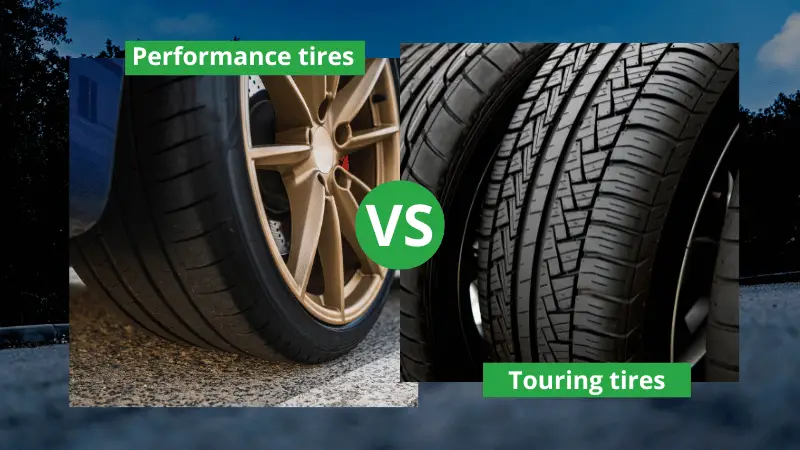When it comes to choosing the right tires for your vehicle, performance and touring tires are two popular options you might consider.
Each type has its own benefits and drawbacks, which can make it difficult to decide which one is the best fit for your needs.
Performance tires are designed for drivers who prioritize handling capabilities and grip, making them suitable for sports cars or vehicles that are driven aggressively.
On the other hand, touring tires offer a comfortable and quiet ride, emphasizing fuel efficiency and longer lifespan, making them a more practical choice for daily driving or long road trips.
In this article, you will learn about the key differences between performance and touring tires, their respective advantages and disadvantages, and ultimately, how to determine which type is the best choice for your particular driving style and preferences.
Performance vs. Touring Tires: Key Differences
When choosing between performance and touring tires, it’s important to consider the following factors:
Handling and Responsiveness
Performance tires are designed for optimal handling and responsiveness. They have stiffer sidewalls and a more aggressive tread pattern, allowing for better control and precision, especially at higher speeds or during quick maneuvers. They are ideal for sporty driving or high-performance vehicles.
On the other hand, touring tires prioritize a smooth, quiet ride, and reliable handling. While they may not offer the same level of grip and precision as performance tires, they provide adequate responsiveness for everyday driving and long road trips on various vehicles, including sedans, minivans, and SUVs.
Traction and Cornering
Performance tires typically provide superior traction and cornering capabilities, thanks to their composition and tread design. They can perform well in both dry and wet conditions but may not be the best choice for winter driving.
Conversely, touring tires offer good traction and cornering in a variety of conditions but may not match the high-performance capabilities of performance tires. However, some touring tires excel in winter conditions as they can be designed for all-season use.
Comfort and Noise
Touring tires stand out when it comes to providing a comfortable, quiet ride. They have a softer compound and less aggressive tread pattern, reducing noise and vibrations from the road. This makes them an ideal choice for daily commutes or long road trips.
In contrast, performance tires may generate more noise and offer a stiffer ride due to their construction and focus on performance. As a result, they might not be the best choice if comfort is your priority.
Price and Longevity
Touring tires often offer a longer lifespan and better value for money. Their all-season capabilities and focus on a comfortable ride translate to a longer tread life. In addition, their pricing is typically more budget-friendly compared to performance tires.
Performance tires, while providing impressive handling and traction, typically have a shorter lifespan due to their aggressive tread patterns and composition. However, if you prioritize performance and don’t mind the extra expense, they can offer an exhilarating driving experience.
The Different Performance Tires Explained
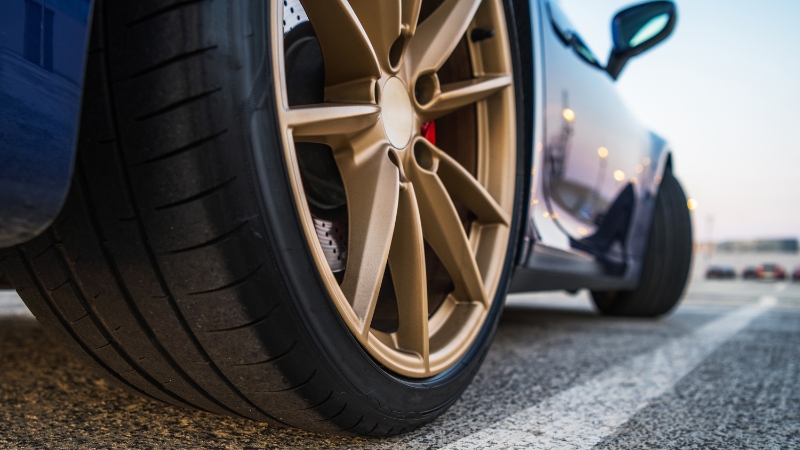
You have a wide variety of performance tires to choose from, depending on your driving needs and preferences.
In this section, we’ll help you understand the key differences between summer performance tires, all-season performance tires, high-performance tires, tread patterns, and compounds.
Summer Performance Tires
Summer performance tires are designed to deliver excellent grip and handling, especially in warm, dry weather conditions. These tires are constructed with softer compounds to provide enhanced traction and responsiveness on summer roads.
However, their performance may suffer in colder temperatures or in heavy rain, so consider this when choosing the best type for your vehicle.
All-Season Performance Tires
All-season performance tires, as the name implies, are built to provide balanced performance throughout varying conditions, including wet and dry roads and light snow.
Although they may not excel in any specific area as summer performance tires do, they offer a well-rounded package, making them suitable for drivers who want a reliable tire for year-round use.
High-Performance Tires
High-performance tires are designed to deliver top-notch handling, braking, and cornering capabilities for sports cars and performance-oriented vehicles. These tires often have higher speed ratings and are constructed with advanced compounds that maximize grip on the road.
While they may offer exceptional performance, they tend to wear out more quickly than other tire types due to their aggressive tread patterns and focus on performance over durability.
Tread Pattern and Compound
The tread pattern and compound of a performance tire play a critical role in its overall performance capabilities.
Summer and high-performance tires often feature larger contact patches and less grooving to maximize road contact for better grip, while all-season tires have deeper grooves and unique tread patterns that help maintain adequate performance in various conditions.
The compound used in a performance tire is designed to provide optimal grip, responsiveness, and handling during high-speed maneuvers or in demanding road conditions.
Softer compounds, typically found in summer and high-performance tires, offer better grip and cornering capabilities but wear out more quickly than harder compounds used in all-season tires.
The Different Touring Tires Explained
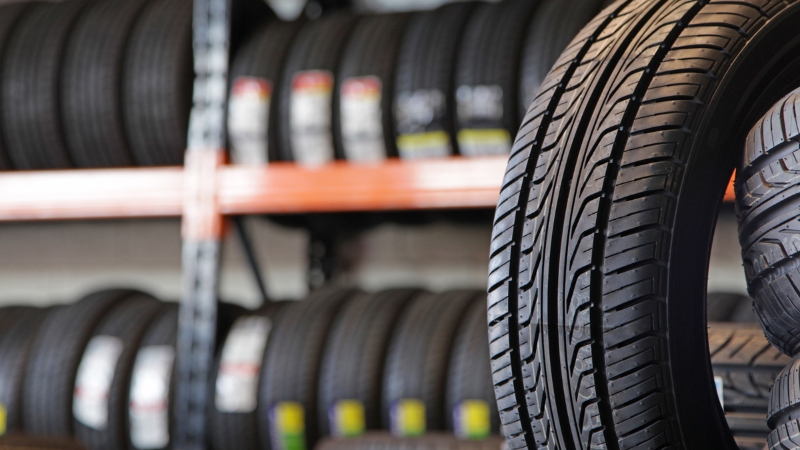
Touring tires are designed to provide a comfortable and quiet ride with good all-season versatility. They are an excellent choice for sedans, minivans, and other passenger vehicles that prioritize ride comfort and tire longevity.
In this section, we will explore the characteristics of grand touring tires, all-season touring tires, as well as their tread patterns and compounds.
Grand Touring Tires
Grand touring tires are a step up from standard touring tires, offering a balance between performance and comfort. They provide a smooth, quiet ride, while also delivering improved handling and responsiveness compared to regular touring tires.
These tires are suitable for luxury sedans and high-end vehicles, as they blend comfort with a touch of performance.
All-Season Touring Tires
All-season touring tires are designed to offer a comfortable driving experience in a variety of road and weather conditions. They provide good traction on both wet and dry roads, making them a reliable choice for year-round driving.
If you are looking for a tire that can handle various driving conditions without sacrificing comfort, all-season touring tires are an ideal option.
Tread Pattern and Compound
The tread pattern and compound of touring tires are designed to meet the specific needs of daily driving. They typically feature a symmetrical tread pattern for even wear and longevity, as well as siping for improved wet traction.
The compound used in touring tires is generally a harder rubber, which contributes to a longer-lasting tire, but can result in slightly lower performance compared to performance tires.
When choosing the best touring tire for your vehicle, consider your driving habits and the conditions you drive in most often. If you prioritize comfort, quietness, and longevity, touring tires are a great option for you.
Tire Brands
When comparing performance and touring tires, it’s essential to consider the leading tire brands that offer quality options to suit different needs. In this section, we’ll discuss some top tire manufacturers and their offerings.
Goodyear
Goodyear is a renowned tire manufacturer, known for its reliable all-season performance and touring tire options.
Their Eagle Exhilarate is a popular ultra-high-performance tire that provides excellent wet and dry traction.
On the other hand, options like the Assurance ComfortDrive are well-suited for drivers seeking a comfortable and quiet touring tire experience.
Michelin
Michelin offers a wide range of quality tires, including performance and touring options.
For performance enthusiasts, the Pilot Sport 4S is a top choice, delivering exceptional handling and wet grip.
If touring tires are more your speed, consider the Michelin Premier A/S, which offers a comfortable, quiet ride alongside impressive durability.
Related article: Michelin Tires: A Complete Brand Review
Continental
Continental is another reputable tire brand offering various performance and touring tire options.
Their ExtremeContact Sport is a well-regarded performance tire, known for its precise handling and superior wet grip.
For those seeking a touring tire, the PureContact LS provides a comfortable ride and excellent all-season capabilities.
Bridgestone
Bridgestone is a globally recognized brand, offering a range of performance and touring tires.
The Potenza RE-71R stands out as an excellent performance tire, excelling in dry grip and handling.
If a touring tire better suits your needs, consider the Turanza QuietTrack, which boasts a comfortable and quiet ride along with impressive wet performance.
Pirelli
Pirelli is an Italian tire manufacturer that produces high-quality tires for various applications.
The P Zero series is highly regarded for its performance capabilities, providing exceptional wet and dry grip.
For those interested in touring tires, the Pirelli Cinturato P7 All Season Plus offers a balance of comfort, low noise, and all-season performance.
Cooper
Cooper is an American company with a line of performance and touring tire options.
The Cooper Zeon RS3-G1 is a popular performance tire choice that provides good handling and wet traction.
Meanwhile, the CS5 Ultra Touring is an all-season touring tire that delivers a comfortable ride, excellent wet performance, and long tread life.
Related article: Cooper Tires: A Complete Brand Review
Tire Selection by Vehicle

When picking the best tire option for your vehicle, consider the vehicle type, as well as specific factors such as driving preferences, conditions, and desired longevity. The following sections outline various vehicle types and their recommended tire selections.
Sports Cars
With sports cars, performance is the priority. In this case, you should consider choosing performance tires that deliver better handling, grip, and overall performance. These tires are well-suited for fast acceleration, cornering, and braking, making them a perfect match for your sports car.
SUVs
For SUVs, both tire options can work, depending on your driving preferences. If you are focused on fuel efficiency, comfort, and durability, consider touring tires. However, if you prefer a more performance-oriented drive for your SUV or plan to use it off-road, performance tires may be the preferred choice.
Sedans
When it comes to sedans, touring tires are a better fit as they prioritize comfort, noise reduction, and long-lasting tread life. These tires can also handle various road and weather conditions, making them a good all-around option for daily transit and extended road trips.
Minivans
Minivans are designed for families, so the focus on smooth, quiet rides and durability is prominent. In this case, touring tires would be the preferred choice, offering a comfortable ride with extended tread life, without sacrificing handling and traction.
Weather Conditions
When choosing between performance and touring tires, it’s essential to consider the weather conditions you’ll primarily be driving in. The main types of tires based on weather conditions are summer tires, all-season tires, and winter tires.
Summer Tires
Summer tires, often found on performance cars, are designed to provide excellent traction and grip in both wet and dry conditions during the warmer months. These tires feature a unique tread pattern that offers better handling and braking performance in higher temperatures.
However, summer tires are not recommended for use in colder temperatures or on icy and snowy roads, as they lose their flexibility and provide less grip in those conditions.
All-Season Tires
All-season tires can be a suitable choice if you’re looking for a tire that can handle various weather conditions. Both touring and performance tires can be found in all-season variations, offering a balance of traction, ride comfort, and longevity in dry, wet, and light snow conditions.
All-season performance tires may exhibit better handling than regular all-season tires, while touring tires generally deliver a smoother, quieter ride.
Winter Tires
Winter tires are designed explicitly for driving in colder temperatures and various winter weather conditions such as snow, ice, and slush. These tires have a unique rubber compound that remains flexible in low temperatures, providing optimal traction and grip on slippery surfaces.
Winter tires are not included in the performance vs. touring tire comparison, as they are a specific tire category mainly used in harsh winter conditions.
In summary, it’s essential to consider the weather conditions you’ll be driving in before selecting the best tire option for your vehicle. Summer tires are suitable for warmer conditions, all-season tires can handle a range of weather situations, and winter tires are for cold, snowy, and icy conditions.
Tire Features and Ratings
When comparing performance and touring tires, it’s essential to understand the various features and ratings that can impact your driving experience. In this section, we’ll discuss speed rating, load index, treadwear grade, and aspect ratios.
Speed Rating
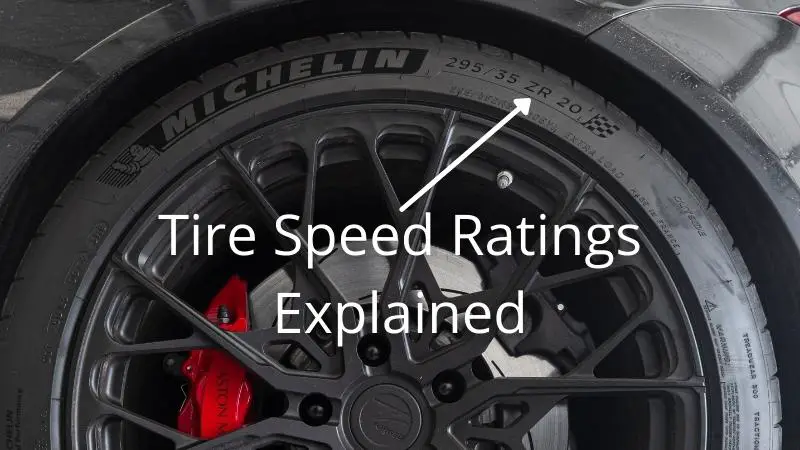
The speed rating of a tire is an indicator of how fast it can safely go for an extended period. It also represents the overall performance potential of the tire.
Performance tires usually have a higher speed rating than touring tires, which means they’re designed for more aggressive driving and provide better handling at high speeds.
On the other hand, touring tires are designed for a comfortable and stable ride, often with a lower speed rating.
It’s crucial to stick to your vehicle manufacturer’s recommendation when selecting a tire with an appropriate speed rating.
Load Index
The load index of a tire represents the maximum weight it can support when properly inflated. Both performance and touring tires come with various load index options, so you should select a tire based on your vehicle’s weight and capacity requirements.
You can find the recommended load index for your vehicle in the owner’s manual or on the tire placard, usually located on the driver’s door jamb, fuel door, or inside the glove box.
Treadwear Grade
Treadwear grade is a measurement of a tire’s durability and how long it can last in terms of mileage. Touring tires generally have a higher treadwear grade, meaning they offer better mileage and longer-lasting tread life.
Performance tires, on the other hand, often have a lower treadwear grade, sacrificing longevity for better handling and grip. It’s essential to weigh the importance of the tire’s lifespan against your driving needs and preferences.
Aspect Ratios
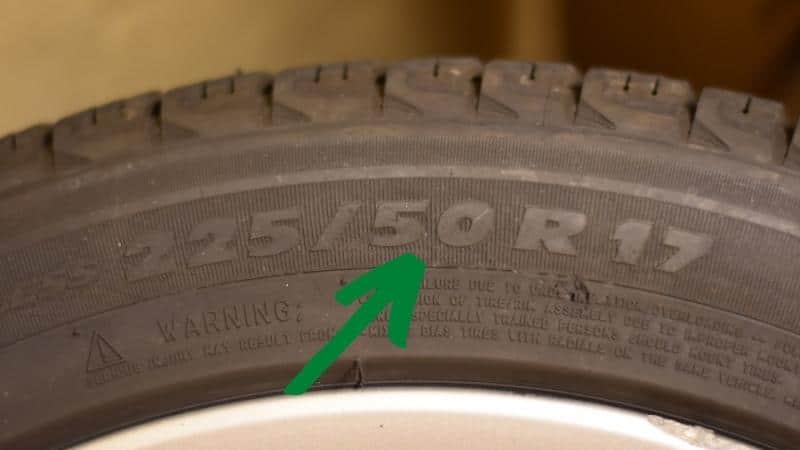
Aspect ratio refers to the relationship between a tire’s width and sidewall height. A lower aspect ratio indicates a shorter sidewall, which can result in more responsive handling, while a higher aspect ratio usually correlates with a smoother, more comfortable ride.
Performance tires often have lower aspect ratios, offering better handling and cornering capabilities. Touring tires typically feature higher aspect ratios, providing a more comfortable and quiet ride.
In conclusion, consider your driving preferences and requirements when selecting between performance and touring tires. Both types have their strengths and weaknesses, so it’s crucial to take the various tire features and ratings into account when making your decision.
Factors to Consider
In choosing between performance and touring tires, several factors should be taken into consideration to determine the best option for your vehicle and driving needs.
Tire Lifespan and Maintenance
Touring tires typically have a longer lifespan due to their tread designed for increased surface contact with the road, resulting in less overall wear and tear. On the other hand, performance tires tend to wear out faster, meaning more frequent replacement and maintenance may be necessary.
To maximize the lifespan of your tires, regularly check tire air pressure and adjust as needed, as underinflated tires can cause excessive wear.
Fuel Efficiency and Economy
Fuel efficiency can be impacted by the type of tire you choose. Touring tires often provide a smoother drive, possibly leading to better fuel economy. However, detailed comparisons regarding fuel efficiency between these two tire types are limited.
It is essential to maintain proper tire air pressure, as underinflated tires can negatively impact your vehicle’s fuel efficiency.
Safety and Stopping Distance
Both performance and touring tires provide a good amount of traction on both wet and dry roads, which can influence the stopping distance of your vehicle.
However, performance tires often have better grip at higher speeds and sharp turns, which may be a crucial factor if you prioritize driving performance and handling.
Ride Comfort and Noise
Touring tires are designed to provide a more comfortable and quieter ride, giving you better refinement and an overall smoother driving experience.
Conversely, performance tires tend to sacrifice ride comfort in exchange for handling, agility, and overall performance, meaning they may generate more road noise and have a stiffer feel on the road.
Hi, my name is Niklas, the head content creator & CEO of Whirling Wheelz. I am very interested in vehicles of all kinds, mainly cars. I have a car mechanics degree from high school and a big hobby of mine is to follow the WRC (World Rally Championship) both online and through travel.

